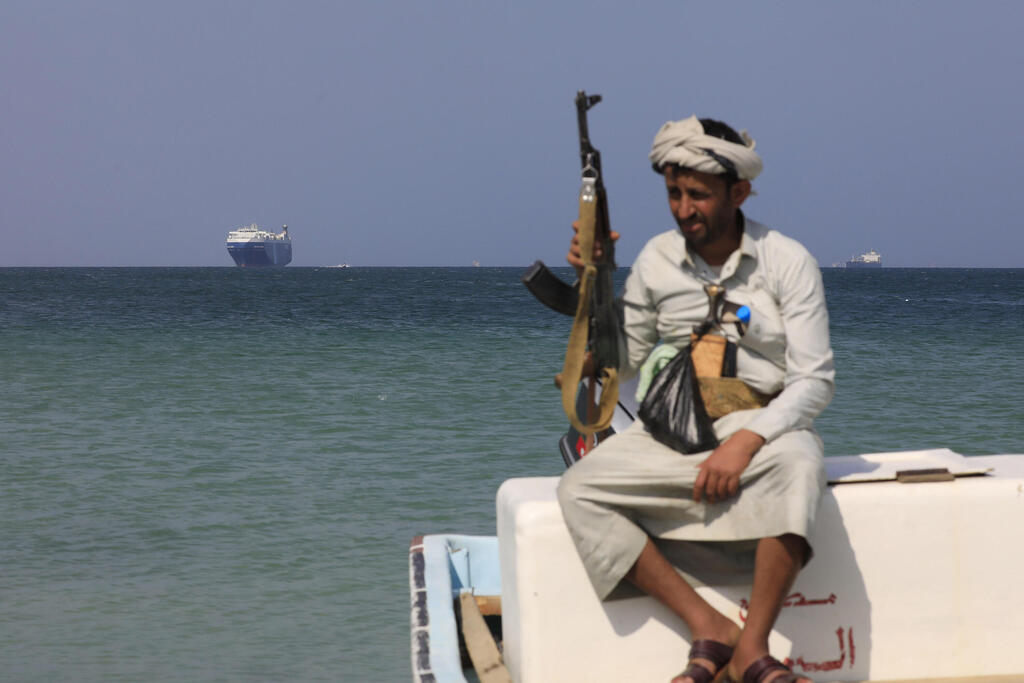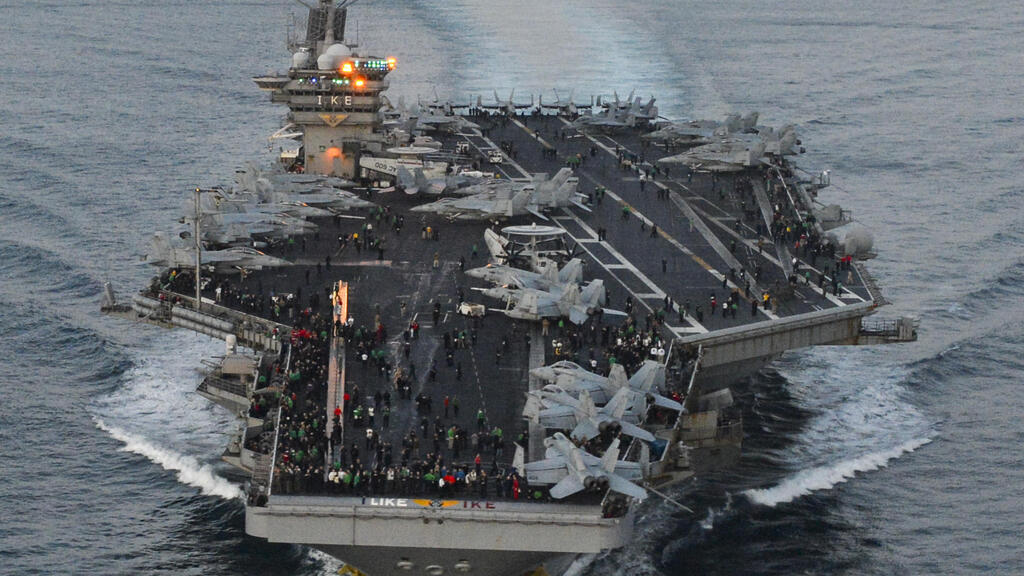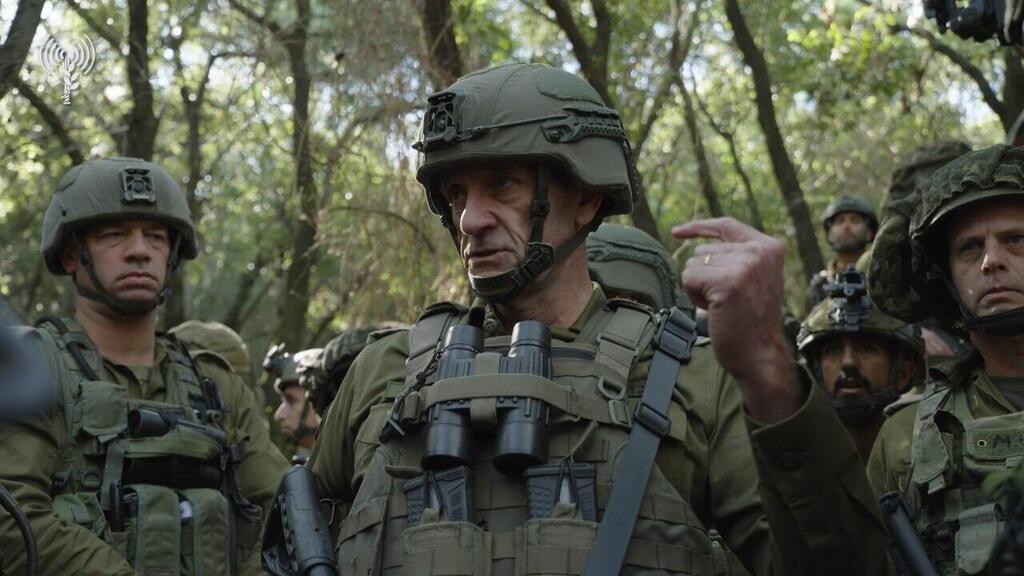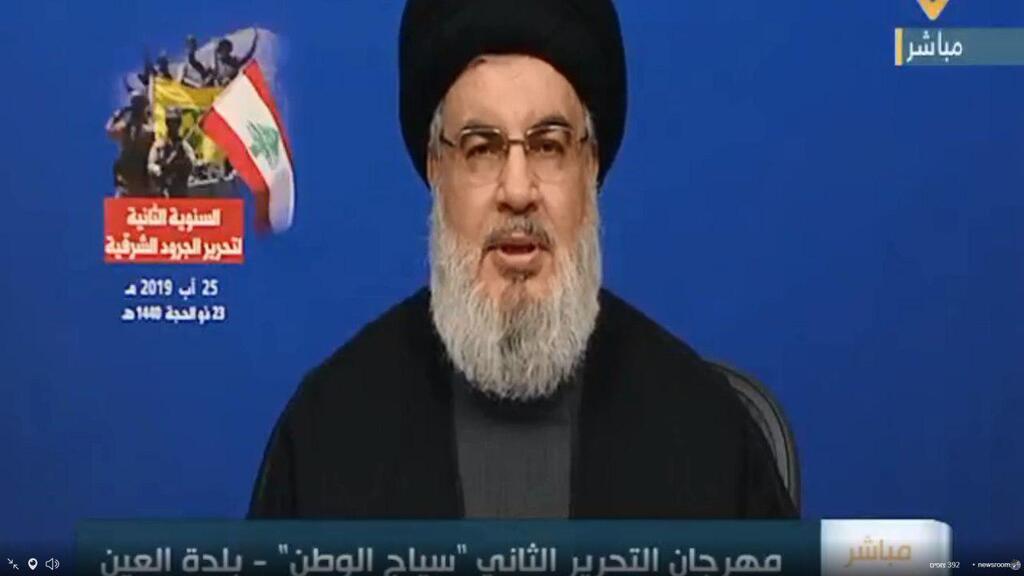Getting your Trinity Audio player ready...
When Hamas attacked Israel on Oct. 7 and inflicted what is considered to be the Jewish state’s worst intelligence and military failure in recent years, Iran’s leadership celebrated the opening act of a wider regional conflict.
More stories:
As Israel’s archenemy, Iran has repeatedly called for the destruction of the Jewish state throughout the past decades, and has helped fund and train Hamas in the Gaza Strip. Iran has also funded other terrorist organizations that continuously threaten Israel, some of which have entered the current round of violence, potentially plunging the region into a much larger war.
4 View gallery


Irania-backed Houthis commandeer a cargo ship in the Gulf of Aden
(Photo: Yahya Arhab / EPA)
“Iran can be satisfied that its tactic of unifying the arenas against Israel is working, albeit at low intensity,” Dr. Yoel Guzansky, a senior researcher at the Institute for National Security Studies, said. “All the arenas are active, and Israel is preoccupied, surrounded by fire. The Iranian interest is to exhaust Israel,” Guzansky said.
Leading the way is Hezbollah, the Shi’ite political and military organization backed, financed, and trained by Iran that is the strongest armed force in Lebanon. One day after the war in Gaza began, Hezbollah began firing rockets into northern Israel. It has since continued to do so, and the Israeli military continues to respond with airstrikes and artillery fire.
Several Israeli soldiers and civilians have been killed and considerable property damage has been inflicted by the Hezbollah attacks. Meanwhile, over 100 Hezbollah terrorists are believed to have been killed by Israel in its responses.
Tens of thousands of people, the majority of people living in northern Israel, have been evacuated further south, and the fighting between Hezbollah and Israel is currently being contained by both parties. However, this could well escalate into a full-blown war.
Iran seeks not to exhaust Hezbollah incase Israel attacks its nuclear facilities
For Iran, supporting Hezbollah has always been part of its regional strategy and aspirations. But with the Shi'ite group, and by extension Iran, being careful to avoid further escalation for now, Iran may be signaling that its desire lies elsewhere at the moment. “By exhausting it, Iran wants to hurt Israel,” Guzansky said. “But ultimately, Iran wants to safeguard Hezbollah as its insurance policy.”
For years, Israel has been warning against the Iranian nuclear program. While Iran denies that the purpose of its nuclear program is military, Israel and many other countries believe otherwise.
Israeli officials have threatened on numerous occasions that should Iran progress significantly with its nuclear program, Israel would attack its nuclear facilities. Such an attack would clearly plunge the region into a much wider conflict.
“Iran doesn’t want to wear out Hezbollah, because it needs it in case Israel attacks its nuclear facilities,” Guzansky said. “What is happening now is convenient. Israel’s north is paralyzed, and Hezbollah losses are almost insignificant.”
During the current war, Iranian-backed militias have also launched drone strikes against US military bases in northern Iraq and eastern Syria, causing several casualties, and the United States has retaliated.
“First and foremost, Iran operates according to its own interests,” Maj. (ret.) Alex Grinberg, a former Israeli military intelligence officer and an expert on Iran at the Jerusalem Institute for Strategy and Security, said. “Iran will continue sacrificing Hezbollah as long as it works for it, but if it wanted to escalate, it would have directed Hezbollah to use all of its firepower,” he said.
For Israel, the situation is not as convenient. The evacuation of the country’s northern and southern residents has paralyzed those areas, and the economy and agriculture have come to a standstill, at a staggering toll.
Both Israeli Prime Minister Benjamin Netanyahu and Defense Minister Yoav Gallant have repeatedly warned Hezbollah against escalating the situation. “Israel says it cannot put up with the current situation, but it doesn’t have much choice, as the US is stopping it from escalating,” Guzansky said.
When the war began, US President Joe Biden was quick to warn other nations not to try to exploit the situation, although he did not name Iran or any other power. “To anyone thinking of taking advantage of the situation, I have one word: Don’t,” Biden said several times.
4 View gallery


U.S. S. Dwight D. Eisenhower in the Persian Gulf
(Photo: Merissa Daley / US DEPARTMENT OF DEFENSE / AFP)
The US has mobilized aircraft carriers to the region as a deterrent. “Iran will always continue to be watching on the sidelines,” Grinberg said. “This is the basis of its doctrine, to not get directly involved in conflict. Only if Israel will attack its nuclear facilities will Iran respond directly.”
For now, Iran is watching closely to see how successful Israel will be in its stated aim of crushing Hamas. If Tehran perceives Hamas to be close to destruction, it might be motivated to ramp up the fire.




